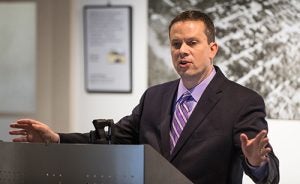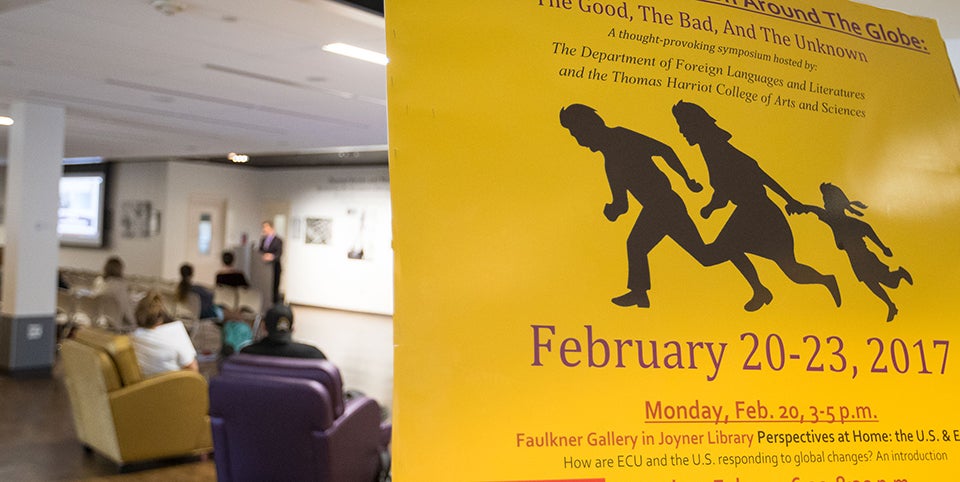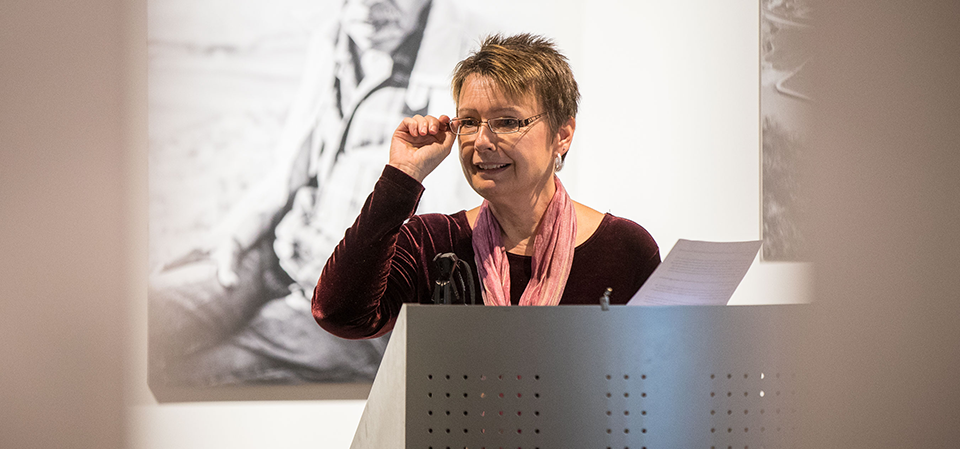A MATTER OF MIGRATION
Symposium centers on refugee and immigration issues
With immigration and the global refugee problem at the forefront among national and global issues, East Carolina University faculty and students participated in “[In]Voluntary Migration Around the Globe: the Good, the Bad and the Unknown” on Feb. 20-23.
The four-day symposium was presented by the Department of Foreign Languages and Literatures and the Thomas Harriot College of Arts and Sciences. Associate professor of German Dr. Birgit Jensen, a member of the symposium planning committee, said faculty began planning the event last fall to challenge the politicized election rhetoric about immigrants to the United States.
“What we need to find are politically humane solutions to the underlying causes that force people to leave their homes for survival and safety,” Jensen said.
In his opening remarks, Dr. William Downs, dean of the Thomas Harriot College of Arts and Sciences, echoed the need for discussion rather than rhetoric.

Dr. William Downs, dean of ECU’s Thomas Harriot College of Arts and Sciences, highlighted the need for sober discussion rather than political rhetoric.
“What we need at this time is sober and sophisticated analysis of a complicated and complex public policy challenge,” he said. “The movement of peoples, voluntary or otherwise, is a matter of public policy. It’s not just the stuff of ideals; it’s not just the stuff of our imagination of a borderless world, or our visions of a perfectly secure world, or our fears of others who look and live differently than we do.”
Downs emphasized that the issue is timely and close-to-home, as well as timeless and global. There are examples of immigration bans and restrictions throughout United States history, he said, citing several examples.
In the U.S., Downs said, there are more than 42 million legal immigrants, making up about 13.2 percent of the population, as well as an estimated 11 million unauthorized immigrants. Over the most recent decade for which data is available, North Carolina’s Hispanic population grew by the greatest percentage of any state.
But it is not just an American problem, Downs said. “We are not alone in struggling with this dilemma; we are not alone in wrestling with prescriptions that may seem unpalatable.”
Dr. Purificación Martínez, assistant chair of the Department of Foreign Languages and Literatures, said that of 65.3 million displaced worldwide, according to the United Nations, only 107,100 have been resettled. Of the countries hosting the most refugees, none are first-world countries; Turkey and Jordan top the list.
The symposium featured screenings of films such as “The Resettled” and “The Land Between,” as well as a keynote address by Consul General of Mexico Remeios Gómez Arnau and roundtable discussions with faculty, students and humanitarian aid workers.
“As climate changes, struggles over energy resources and culture wars affect our globe,” Jensen said, “we cannot afford to be partisan, blind or cavalier about asylum and migration.”
Downs said that the university is committed to bringing in more foreign students, especially foreign graduate students. “We believe that doing so enriches the learning opportunities and learning experience for everyone,” he said.
In conjunction with the symposium there will be a month-long exhibit of migration-inspired artwork by ECU faculty, students and staff on display at The Scullery, 431 Evans St.

The symposium included documentary screenings, panel discussions and a keynote address by Remedios Gomez Arnau, Consul General of Mexico.
